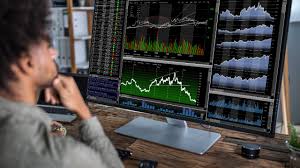
When you give money to trade brokers, it involves the process of funding your trading account so that you can participate in various financial markets and execute trades. Here’s a general overview of how it works:
- Choosing a Broker: The first step is to select a reputable and regulated trade broker. There are many online brokers available, and you’ll want to consider factors like fees, trading platform, customer service, available markets, and security before making a decision.
- Account Opening: Once you’ve chosen a broker, you’ll need to open a trading account with them. This typically involves providing personal information, verifying your identity, and agreeing to the broker’s terms and conditions.
- Funding Your Account: After your account is approved, you’ll need to deposit money into it. Brokers usually offer various methods for funding your account, such as bank transfers, credit/debit card payments, and sometimes even cryptocurrency deposits.
- Account Verification: Some brokers may require additional verification steps before you can start trading. This might involve submitting documents like identification proof, address verification, and/or financial statements.
- Trading: Once your account is funded and verified, you can start trading. You can trade various financial instruments like stocks, bonds, commodities, currencies, and derivatives, depending on the offerings of the broker.
- Placing Orders: When you decide to buy or sell an asset, you’ll place an order through the broker’s trading platform. There are different types of orders, such as market orders (execute immediately at the current market price) and limit orders (execute when the price reaches a specific level).
- Execution: When your order is placed, the broker’s system will attempt to execute it based on the market conditions and your order instructions.
- Monitoring and Managing: As a trader, you’ll need to monitor your positions and manage your trades. This includes setting stop-loss and take-profit levels, adjusting positions, and deciding when to close or exit trades.
- Fees and Commissions: Brokers usually charge fees or commissions for executing trades and providing their services. These fees can vary based on the broker and the type of trade.
- Withdrawing Funds: If you want to take your profits or withdraw your funds, you can request a withdrawal from your trading account. The broker will process the withdrawal according to their procedures, and you’ll receive the funds in your designated account.
Keep in mind that trading involves risks, and it’s essential to have a solid understanding of the markets, risk management strategies, and the potential consequences of your trades before you start investing real money. It’s also wise to start with a demo account to practice trading and gain experience before trading with real money.